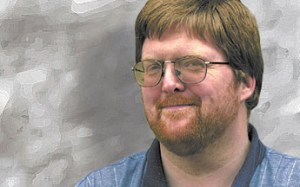Fourteen months after he retired from the NFL, Sean Morey’s head is still buzzing.
Morey retired in August, 2010 after nine seasons in the league due to post-concussion syndrome. He doesn’t want to get into details, but admits the symptoms are still sometimes debilitating, adding, “I’m beside myself that I’m still feeling the after effects.”
“It’s getting to the point where I’m getting really frustrated that I’m still in pain,” Morey said last week while visiting Hebron Academy, where he was being inducted into the school’s athletic hall of fame for leading the Lumberjacks to a New England prep football title in 1994.
Morey was 34 years old and preparing for training camp with the Seattle Seahawks, with whom he had recently signed a free agent contract, when doctors told him they couldn’t, in good conscience, let him do what he’d done for almost a decade as an All-Pro special teams player.
The concussion he suffered that offseason wasn’t his first. But it was one of the first where he was armed with the knowledge of what had happened to his brain and what the long-term implications could be.
A year before his retirement, Morey was named co-chair of the NFL Players Association’s concussion and traumatic brain injury committee. He has studied the cumulative and compounding effects of head injuries such as dementia and CTE (chronic traumatic encephalopathy).
He still has an active role with the NFLPA, advising it on the issue during the recent lockout negotiations.
“I wanted players to recognize and understand what scientists have known for a long time,” he said. “I just couldn’t quite understand why this had been in the medical field and had been discussed openly for such a long time, but I as a player had never understood what the risks were or potential risks were.”
Morey is determined to educate players about those risks, and he wants players at all levels to understand them. He also wants players to learn how to weigh them against the culture of football, a culture that still isn’t completely divorced from its macho, “Ah, you just got your bell rung. Get back out there,” heritage.
In 2009, while playing for the Arizona Cardinals, Morey admitted to playing with a concussion in a game against the Chicago Bears. Despite his knowledge on concussions, he convinced himself his symptoms were connected to a bout with the flu and downplayed them to the team’s training staff.
“I have very few regrets. I just hope others can learn from my mistakes, to be quite honest with you,” he said last week. “I’m not proud of the way I handled it, but at the time, nobody in the locker room understood what I had been researching. For me to take myself out of a game, at that time… foolishly and selfishly, I was more concerned with people’s perception of me and maintaining the respect I’d earned in the locker room rather than my own personal health.”
Morey doesn’t want to discourage anyone from playing football. He said he wants high school, prep and college players to practice smarter and manage their injuries properly so they can chase their dream of playing at the next level. And he wants everyone in the locker room to take an active role in helping them do that.
“Sometimes when we get concussed… I mean, by definition, we’re not thinking properly… so look out for your teammates. Make sure that they know,” he said. “If you can create an environment where the players are cognizant of the risks and the coaches are knowledgeable of how to identify the signs and symptoms of a concussion, and they know how to communicate with the trainers and make sure that they manage them properly and conservatively, and make sure that their health is a priority, not their competitive interests, then I think you can create an environment where the players are communicating with each other and looking out for each other.”
“It’s not a badge of honor or courage to play with a concussion. It’s selfish, because you’re not helping the team. You could potentially delay the time it takes to recover and you may not be there at the end of the season when the team needs you to win playoff games,” he said.

Comments are no longer available on this story